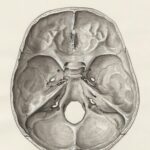The Gut-brain axis explained
When we think about mental health, we often focus on the brain. But did you know that your gut plays a major role in how you feel? The gut and brain are closely linked, communicating through a complex system known as the gut-brain axis. Scientists have found that gut health can influence mood, stress levels, and even the risk of developing anxiety or depression.
In other words, looking after your gut might be just as important as taking care of your mind:
- How gut microbia affects the brain
- Signs of poor gut health and mental health issues
- Improving mental well-being through nutrition
- A connection too strong to ignore: The gut-brain axis
How gut microbiota affects the brain
Inside your gut live trillions of tiny bacteria, collectively known as the microbiome. These bacteria help digest food, support the immune system, and even produce neurotransmitters like serotonin, which is often called the “happiness chemical.” In fact, when it comes down to it, about 90% of serotonin is made in the gut! When the gut microbiome is out of balance, it can contribute to mental health problems like low mood, anxiety, and stress.
Nutrients That Support Mental Well-being
Certain vitamins and minerals are essential for brain function and emotional stability, such as Omega-3 Fatty Acids (found in salmon, walnuts, flaxseeds) that help build brain cell membranes and reduce inflammation, which is linked to depression and anxiety.
B Vitamins (found in leafy greens, eggs, and whole grains) can support the production of neurotransmitters like serotonin and dopamine. A B12 deficiency is linked to fatigue and low mood.
Another reliable source of nutrients is Magnesium (found in nuts, seeds, and dark chocolate): It helps regulate stress hormones and can improve sleep quality.
Zinc (found in pumpkin seeds, lentils, and beef) plays a role in brain function and has been linked to reduced symptoms of depression.

The role of the gut microbiome in mood regulation
Your gut is home to trillions of bacteria, collectively known as the microbiome. These bacteria don’t just help with digestion—they also influence your mental state by producing neurotransmitters like:
Serotonin (the “happiness hormone”) – About 90% of serotonin is actually made in your gut! A healthy gut means better mood regulation.
Dopamine (the motivation chemical) – Gut bacteria influence dopamine levels, which affect motivation and pleasure.
GABA (a calming neurotransmitter) – Supports relaxation and reduces anxiety.
When your gut microbiome is imbalanced (due to poor diet, stress, or antibiotics), it can lead to inflammation, which has been linked to depression, anxiety, and brain fog.
How sugar and processed foods affect mood
Highly processed foods and excess sugar can negatively impact mental health in multiple ways:
- Blood Sugar Spikes and Crashes – Eating too much sugar causes sudden spikes in blood sugar levels, followed by crashes that can leave you feeling irritable, anxious, or fatigued.
- Increased Inflammation – Processed foods trigger chronic inflammation, which has been linked to depression and cognitive decline.
- Disrupting Gut Bacteria – A diet high in refined sugar and artificial additives feeds bad bacteria, throwing off your microbiome balance.
Cutting down on processed foods, refined sugars, and artificial additives can help stabilise mood and improve energy levels throughout the day.
Probiotics and Prebiotics: Feeding your brain through gut health
- Probiotics (good bacteria) – Found in yoghurt, kefir, sauerkraut, kimchi, and miso. These foods introduce beneficial bacteria to your gut.
- Prebiotics (food for good bacteria) – Found in fibre-rich foods like bananas, onions, garlic, oats, and asparagus. These help beneficial bacteria thrive.
Regularly eating these foods can boost gut health, improve digestion, and help regulate mood and stress levels.
Hydration and mental clarity
Even mild dehydration can lead to fatigue, brain fog, and irritability. Water is essential for transporting nutrients to the brain and flushing out toxins. Aim for 6-8 glasses of water per day, and if plain water isn’t your thing, herbal teas or infused water with lemon or mint are great alternatives.
Caffeine & Alcohol: The mood rollercoaster
- Caffeine – While moderate caffeine intake can boost focus and alertness, too much can trigger anxiety, restlessness, and sleep disturbances.
- Alcohol – Often used to “unwind,” alcohol can actually deplete serotonin levels, leading to low mood, poor sleep, and increased anxiety over time.
- If you’re sensitive to caffeine or alcohol, reducing consumption can stabilise your mood and improve sleep quality.
Food as medicine for your mind
What you eat directly affects how you feel, influencing mood, stress levels, and cognitive function. A diet rich in whole, unprocessed foods, healthy fats, and gut-friendly nutrients can help support mental well-being, while processed foods and sugar may contribute to mood swings and fatigue.
The food you eat can be either the safest and most powerful form of medicine or the slowest form of poison. — Ann Wigmore
Signs of poor gut health and mental health issues
An unhealthy gut can show up in different ways, from digestive issues like bloating and diarrhoea to more surprising symptoms like brain fog and fatigue. Factors like a poor diet, overuse of antibiotics, and chronic stress can all harm gut bacteria, leading to inflammation that affects the brain.
Many people don’t realise that what they eat can directly impact their mental well-being.
Improving mental well-being through nutrition
The good news is that making small changes to your diet can support both gut and mental health. Probiotics (found in foods like yoghurt, kefir, and sauerkraut) help introduce good bacteria to the gut, while prebiotics (found in fibre-rich foods like bananas and onions) feed these beneficial microbes. Cutting down on processed foods and eating a variety of whole, plant-based foods can also help keep your gut in top shape.
A connection too strong to ignore: The gut-brain axis
The connection between gut health and mental well-being is too strong to ignore. By taking care of your gut microbiome through diet and lifestyle changes, you can support not only your digestion but also your mood and mental resilience:
- Cut down on refined sugar and processed food
- Reduce caffeine and alcohol consumption
- Look into foods rich in nutrients such as Vitamin Bs, Magnesium, Omega-3 Fatty Acids and Zinc
- Explore Probiotics and prebiotics
- Make sure you stay hydrated throughout the day
If you’re looking to boost your mental health, start with your plate—small dietary changes can make a big difference in how you think, feel, and function every day.









